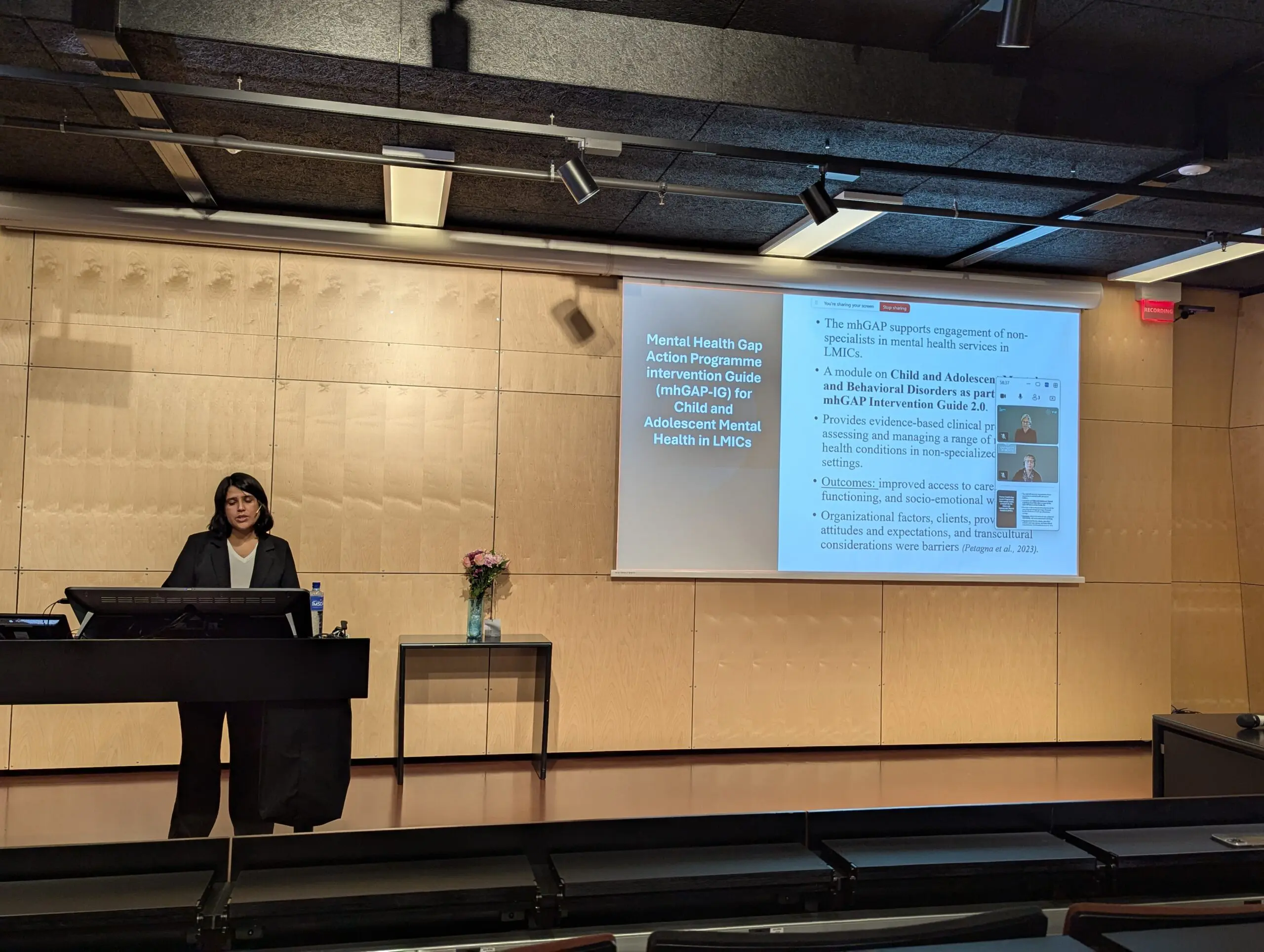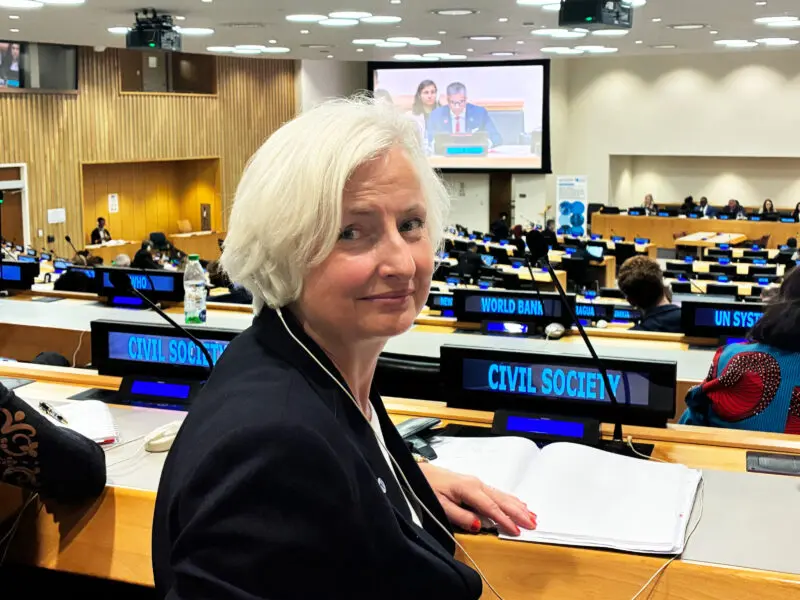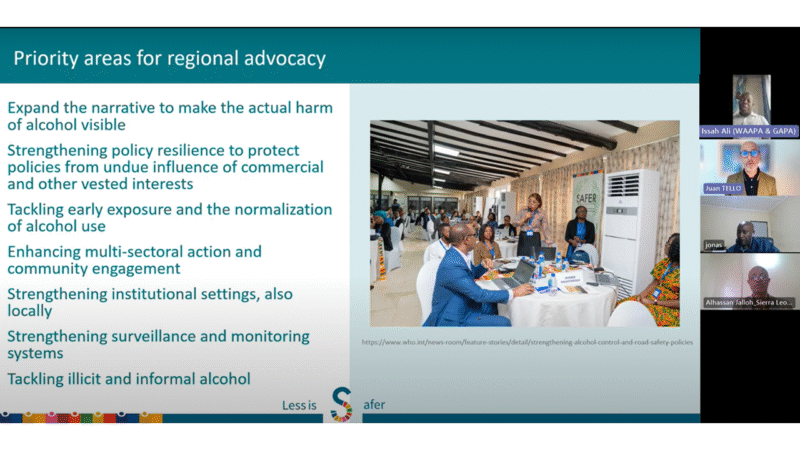Recently Sirjana Adhikari, MPhil in Clinical Psychology, defended her PhD thesis in psychology at the UiT – the Arctic University of Norway. Dr. Adhikari’s thesis is significant in bridging the knowledge gap on mental health problems among adolescents in Nepal and is a much-needed contribution to ongoing efforts to strengthen mental health and child rights work in the country.
Large-scale studies on adolescents’ emotional and behavioural problems (EBPs) are limited in low- and middle-income countries (LMICs), including Nepal. Dr. Adhikari’s study aimed to narrow this knowledge gap by exploring emotional and behavioural problems among school-going adolescents (grades 6 to 10) in 64 schools across 16 districts of Nepal. 14.2% of the adolescents reported emotional and behavioural problems, a high number considering that adolescents make up about 20% of Nepal’s population of 30 million people. This number is particularly relevant for access to treatment, given that Nepal is an LMIC where treatment gaps can be close to 90%.
Generational gap
In Dr. Adhikari’s study, adolescents’ self-reported emotional and behavioural problems were compared with assessments from their parents and teachers. Adolescents reported more problems than parents or teachers. Dr. Adhikari reflects that this discrepancy might be due to a generational gap in mental health literacy.
“The youths know more about mental health than earlier generations,” she says, adding that “in terms of treatment, it indicates the necessity of obtaining additional information from adolescents when assessing mental health problems.”
The discrepancy between adolescents’ and parents’ perceptions was influenced by gender, caste/ethnicity, family stress/conflicts, and academic performance, and was particularly high among indigenous groups. These findings “underscore the need to address adolescent mental health in Nepal using multiple perspectives in assessment and intervention, and considering cultural contexts,” stresses the newly minted doctor.

Why it matters
Ståle Stavrum, Head of Programmes at FORUT, which has been working alongside CWIN, Child and Adolescent Mental Health Nepal (CAMH-Nepal), and the Government of Nepal for nearly a decade to develop child and adolescent mental health services in the country, is extremely pleased to see Adhikari’s research published.
“It is crucial that mental health measures in Nepal are based on actual, specific, and national knowledge, rather than assumptions derived from international experiences. Sirjana’s study highlights the differences between cultures in Nepal and acknowledges that mental health issues are expressed differently depending on cultural or sub-cultural contexts. The symptom picture varies significantly with culture/sub-culture, and mental health professionals must be aware of these variations to make accurate diagnoses and determine the most appropriate treatments. This knowledge has been lacking in Nepal until now. Sirjana’s findings contribute to the development of a national knowledge base and enhance the competence and professional insight among psychiatrists and psychologists in Nepal”, Stavrum concludes.
Dr. Adhikari is part of Child and Adolescent Mental Health Nepal (CAMH-Nepal) and works at Mental Hospital Lagankhel as a clinical psychologist. Originally trained as a nurse, she decided to become a psychologist and researcher after seeing cases of mental ill-health among children in the clinic and wanting to help them through therapy.
The PhD thesis and the articles published as part of it, can be found at the UiT open archives called Munin.






